Faculty Job: Myths & Realities – an interview with Suayib Üstün
About you
Describe your journey from student to newly appointed faculty
My academic path was not always straight forward. 15 years ago, I read in a magazine that doing bioinformatics will be the job of the future (which it is now!), and I decided to enroll in bioinformatics at the University of Tübingen. However, very quickly I realized that I am more a “wet lab” person. In my second year I failed one of the key informatics exams and my prof gave me the advice to leave academia and to do an apprenticeship, because in his opinion I did not have the capacity to survive in the university business. With the help of my family and my best friend who was studying biology in Erlangen, I decided to start studying biology at the University of Erlangen-Nürnberg. I did my bachelor and master studies there and quickly started working in the lab of Frederik/Ricky Börnke as a research assistant. Luckily, he secured a PhD position in his lab for me and this is how everything started. I finished my PhD after 3 years and moved with Ricky to the Leibniz Institute of Vegetable and Ornamental Crops in Grossbeeren as a Postdoc. It was a very exciting time for me, as I was establishing a new lab in a new institute, which was very useful for my position here in Tübingen. In Grossbeeren, I did mostly research on bacterial effectors and the role of the proteasome during plant immunity. After 2 years of postdoc in Ricky’s lab, I decided to apply for fellowships to secure my own funding to be able to establish and develop my own project in another lab. I applied for EMBO, FEBS, Marie Curie, HSFP and DFG fellowship and was very lucky to be granted EMBO and FEBS. With my FEBS fellowship I moved to the Swedish University of Agricultural Sciences to the Hofius lab to study the crosstalk between the proteasome and autophagy during plant immunity. From the beginning it was clear to me that I had to apply for the Emmy Noether programme of the DFG (comparable to ERC starting grant) within two years of my stay in Sweden, as the deadline of 4 years after receiving my PhD was approaching. Finally, I was very lucky and received the Emmy Noether Award to start my own lab at the Center of Plant Molecular Biology (ZMBP), at the University of Tübingen. Somehow, things have come full circle, as I returned to the place where my academic career started and almost failed.
What inspired you most to pursue your current career?
At this point I can’t really say that I was always very interested in science. I was more into painting and drawing when I was a child. My parents were both workers in factories with no academic background. I didn’t get any science toys such as small microscopes or the Kosmos chemistry box. Anyway, I was only interested in playing with lego as a child. But both of them were very interested in acquiring new knowledge. I remember my parents getting this huge series of encyclopedia books which were our Wikipedia back then. I guess this is how my interest for new things, unknown phenomena and science started.
Definitely many people inspired me:
My parents because they did not get or were even taken away the chance to obtain a good education and fulfill their own dreams. They supported me with everything what they had to get a proper education and pursue my goals.
My first undergrad lab course in molecular plant physiology and all people teaching us there. I remember that at this point I decided that lab work is my future.
With Ricky Börnke I had an amazing enthusiastic mentor/PhD advisor who taught me how to think scientifically. He was always supporting my ideas and also gave me the freedom to do my research.
I met Christopher Grefen first on twitter and then on a conference in Germany. He was heavily advertising for the Emmy Noether Programme and for Tübingen. From the beginning he was very supportive and encouraging during a time where I was not fully convinced of myself. He was a huge inspiration as he also applied and received the same fellowship.
Definitely Sophien Kamoun! First his twitter enthusiasm and #sciencecommunication skills which made me become a #twittermaniac. But also, because he took his time to read my fellowship applications for my postdoc in sweden, although we just met once at a conference and for all of his valuable insights and advices! Working two weeks in your lab was simply amazing and inspiring!
My friend and colleague Anders Hafrén, who is definitely my scientific soul-mate J. We had always amazing (and long) discussions during my time in Sweden.
Scientifically I was very inspired by our finding that the proteasome was a target of bacterial pathogens and involved in plant immunity. We were not very happy in the beginning finding the proteasome as a target, but in the end, it turned out to be intriguing (and complex). I think from there on I was obsessed with degradation pathways (in all kingdoms) in general.
And finally, listening to one of the plenary talks at the biggest plant-microbe conference (MPMI 2012) and dreaming that one day I will stand there giving this lecture.
What is the major focus of you research team?
Our major focus is proteolytic degradation pathways and their role in plant-microbe interactions. A particular focus are the proteasome and autophagy pathways, how they control multiple aspects of plant immunity, and thus are exploited by pathogens to enhance pathogenicity. We are trying to decipher the complex interplay between degradation machineries and microbes to advance our basic knowledge of the plant immune system and virulence strategies of pathogens. Currently, we have three main projects in our lab. Firstly, we are looking into the interplay of vesicle trafficking and autophagy caused by bacterial infection. In a second project, we are looking into the regulation of the proteasome stress response and how bacterial infection might influence the balance between up- and down-regulation of proteasome function. Last but not least, we are trying to understand how bacterial effectors modulate plant defence responses. We have identified effectors targeting proteolytic degradation components and are currently analysing these on a mechanistic level.
Which conferences do you regularly attend?
I love attending conferences, as they are a source of inspiration and an important way to network and start new collaborations. I like conferences with specific themes (e.g. this year’s plant proteostasis meeting in Freiburg, http://plantproteostasis2019.com/) but also broader topics as I like to look beyond my own field. On a very regular basis I attend the historic Molecular Biology Plants conference in Dabringhausen, Germany and biannual Congress on Molecular Plant-Microbe Interactions (IS-MPMI). We will also try to attend ENPER (European Network for Plant Endomembrane Research) on a regular basis to keep up with novel findings in membrane research.
About your job hunt
How long did it take you from the beginning of searching faculty jobs to get one?
I started to “search” for group leader positions in 2017. More specifically I started to write my Emmy Noether proposal during my summer vacation in 2017. In between, I applied for 2 other group leader positions, which I did not receive. In the beginning of 2018, I had my interview at the DFG headquarter in Bonn/Germany and received funding in April 2018. However, as a whole process to establish your research line and develop your own ideas to be able to apply for group leader jobs I think it took at least 4 years.
During your job hunt, what did you learn about yourself or about the process of finding an academic job?
I learned many positive and unfortunately some negative aspects during the process of applying for jobs and becoming independent. The most important thing is to surround yourself with positive people and eliminate negative, manipulative voices. Some people told me I stand no chance to get this prestigious Emmy Noether funding because I didn’t have any CNS papers. I remember being completely demotivated for a while… This will have a huge impact on how you approach the job hunt and also behave during job interviews. One thing that I learned about myself was that I also function in extreme (life-changing) situations. But I also realized that it is not worth it to torture yourself, as it is not the end of your life if you don’t get the job.
The most important thing is to surround yourself with positive people and eliminate negative, manipulative voices.
Based on your experiences and the feedback you got during the job search, what do you think are key skills and accomplishments that a successful candidate must demonstrate?
Sure, publishing your research and ideas is a way to communicate your skills during the job search and thus very important. But I don’t agree with the general perception that publishing in CNS journals (or other high impact factor journals) will secure you a faculty/group leader position. I’ve seen some people with CNS papers struggling to find a position. I guess the most important thing is that you are able to convince people of your own research lines and ideas. It is very essential to follow a strategic path, to establish yourself in a research community and within a research topic, which will for sure help to show a certain degree of independence while applying for group leader positions. During your job hunt you will hear many established scientists telling you: “this is such a competitive business, you need CNS and/ or influential mentors”. Sometimes these people also confused me but, in the end, I did not listen to them. Don’t let yourself discouraged by these statements, believe in yourself, be stubborn, and keep on fighting!
Which published paper was the most influential for your career or getting the faculty job?
I don’t think it was a particular paper, although my latest Plant Cell paper had for sure some influence, that secured me the funding to start my own lab. In general, I had always a specific theme within my publications dealing with proteolytic degradations pathways in plant immunity. I guess in the end this secured me the funding as I could convince the committee that I will continue with this research avenue and take it to another level in my own lab.
Advice for job applicants
Beyond your research and publications, how did you prepare for the academic job hunt during your postdoc?
I went to a lot of conferences to network with many scientists in the world comprising different topics. It will definitely broaden your views and also boost your confidence. Attending conferences enabled me to build a network, which in the end, is also important to find the perfect place for yourself and convince others of your abilities and skills. During an interview, it could be really important that people have at least heard of you and your science, as interviews in general are short.
For me it was also very helpful to be a senior postdoc in Ricky’s group. I learned how to establish a new lab and also how to deal with financial management. Having more responsibilities such as (co)- supervising PhD, master, bachelor students are also obligatory if you really want to start your own lab. Another thing that I would recommend to anyone who wants to pursue an academic career is, try to engage in teaching. Already as a PhD student I participated in organizing and supervising a course for master students on plant-microbe interactions. Of course, it is very time-consuming but, in the end, very beneficial for your future.
How did you prepare for the actual job hunt? How did you identify potential opportunities, prepare your application materials, and prepare for interviews?
I would strongly recommend all Postdocs to apply for the Emmy Noether Programme from the German Research Foundation (DFG): (http://www.dfg.de/en/research_funding/programmes/individual/emmy_noether/index.html). This is simply a perfect programme to generate and apply with your own project proposal. The funding is equal to ERC starting grant.
One other important source of job ads is twitter. If you see an interesting advert try to get information about the institute, future colleagues, research programs etc. It will help you to write an application/proposal which fits to the requirements and the institute. This will also help during interviews and is a good way to prepare for questions during the interview.
About you as a faculty member
What were the initial challenges to starting your own lab?
One major challenge is that you are suddenly not only responsible for yourself and your own little project. You are now responsible for your team members and their different projects. Personally, I want everyone to be happy in their work environment and also with their project. Administrative tasks are also major challenges in the beginning. Luckily I had a lot of help from everyone in our institute which made things easier in the beginning.
What qualities do you look for when recruiting for your lab?
I am looking for people with real interest in our research topic. I like it when candidates can come up with an intriguing question on our previous research or develop own ideas during the interview/application. I look for people who are “lab-allrounders” and can easily fit into a new environment.
On a personal level, I look for people who have strong communication skills and also fit into the research group. For me it is very important that people have a “life” beyond research. It is essential for the work-life balance to maintain interests outside the science world.
How do you manage “work-life balance” as a faculty?
Visiting friends & family, travelling, going out with friends and colleagues help me to manage my “work-life balance”. And having a long holiday-at least 3 weeks-at my parents’ place at the Aegean coast, helps me to “reboot” (or write proposals).
One other important aspect for me is to do sports. I am doing “Freeletics” (a form of bodyweight training) for almost 5 years, which is very liberating after a long work day.
Whom do you like to thank for supporting and inspiring you along this journey?
I want to thank everyone who crossed my path, as I learned many things from positive and also negative encounters. In particular, I would like to thank Ricky, Christopher, Anders, Sophien Kamoun, Daniel Hofius and all of my friends who always believed in me, especially the SLU Crew (lab D413) and my parents.
If prospective students and postdocs want to reach you, where can they contact you and read about your work?
We are very open for everyone who is interested in our lab. In autumn/winter we’ll hopefully have another PhD position available. If you’re interested in joining our lab with your own fellowship feel free to contact me via e-mail. There is an amazing new DFG programme out there: (https://www.dfg.de/en/research_funding/programmes/individual/walter_benjamin/index.html)
You can apply from everywhere (within Germany, from abroad) to join a lab in Germany! Great opportunity beyond MarieCurie, EMBO and FEBS!
Email: [email protected]
Twitter: @SuayibUestuen
Homepage: www.theustunlab.com
Instagram: theustunlab


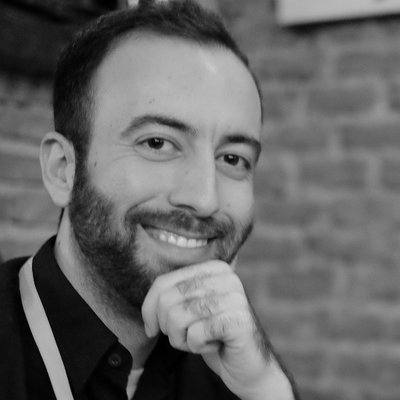
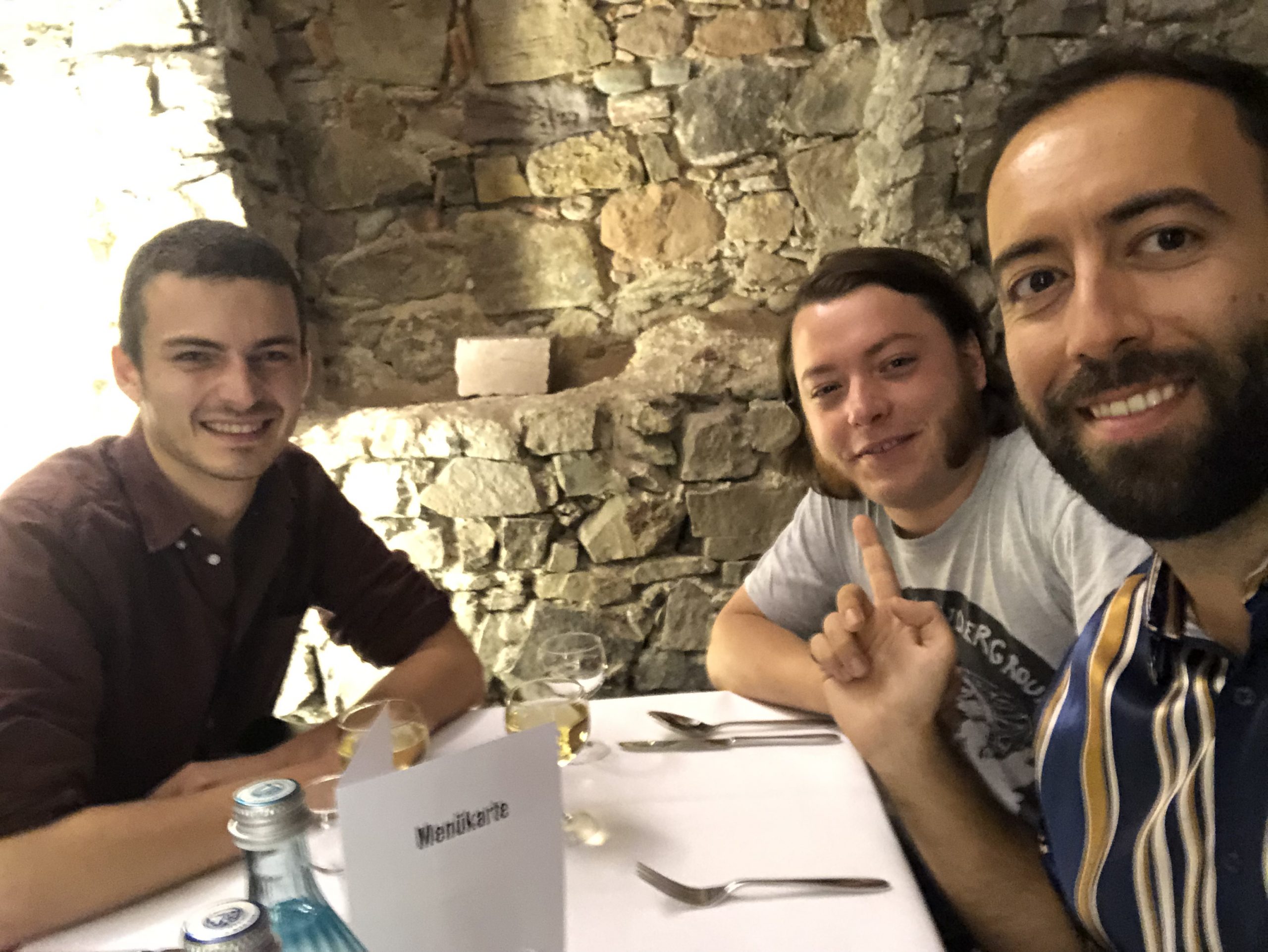
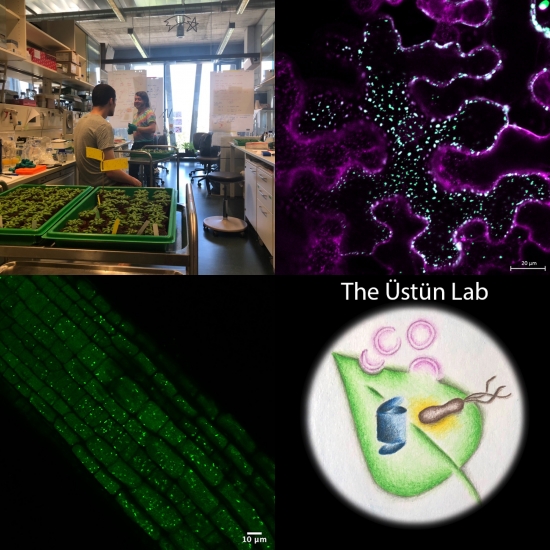
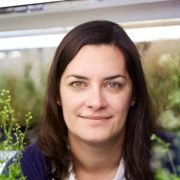
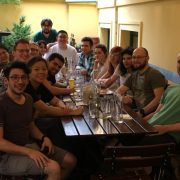
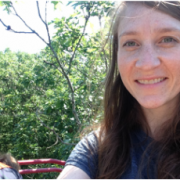
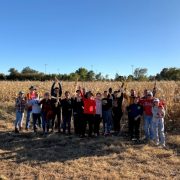
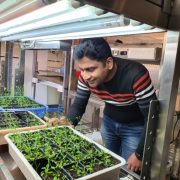
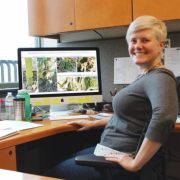
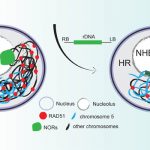

Leave a Reply
Want to join the discussion?Feel free to contribute!